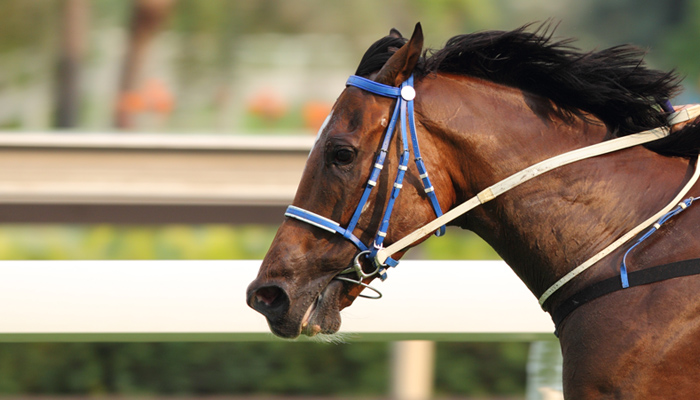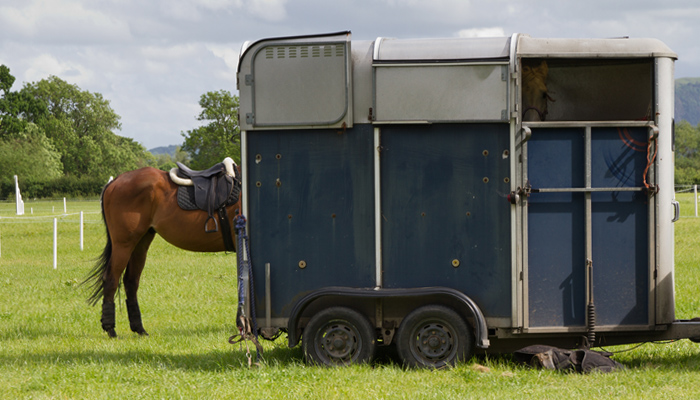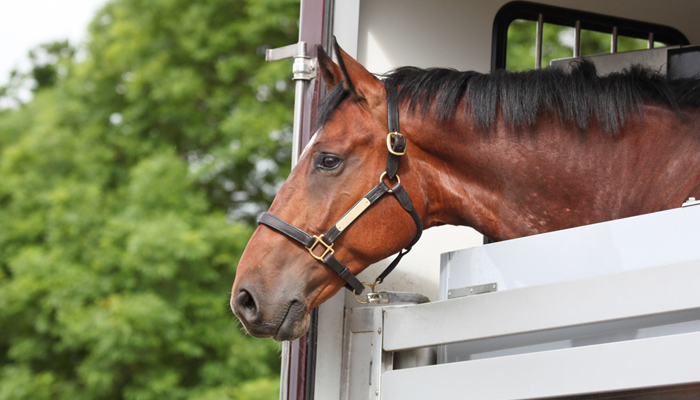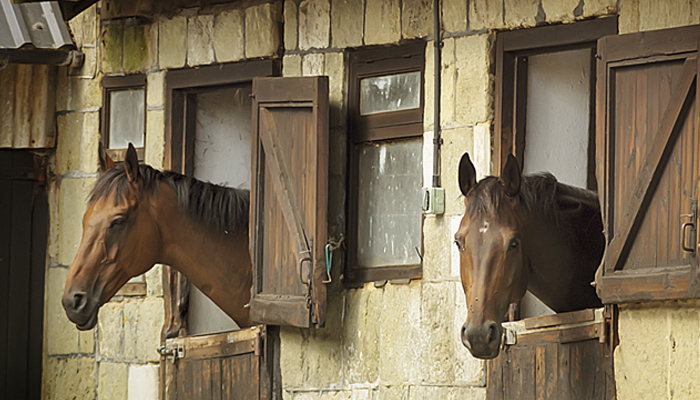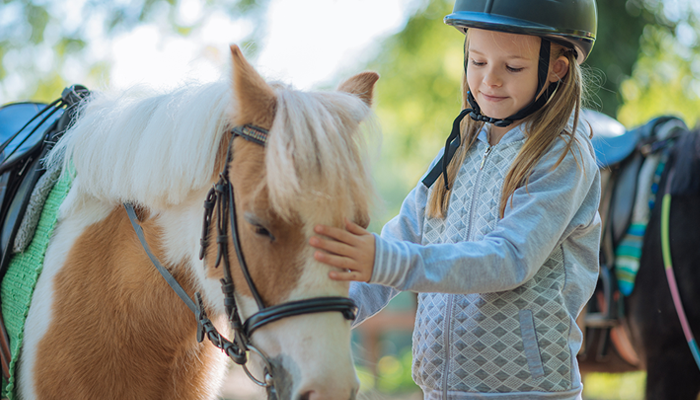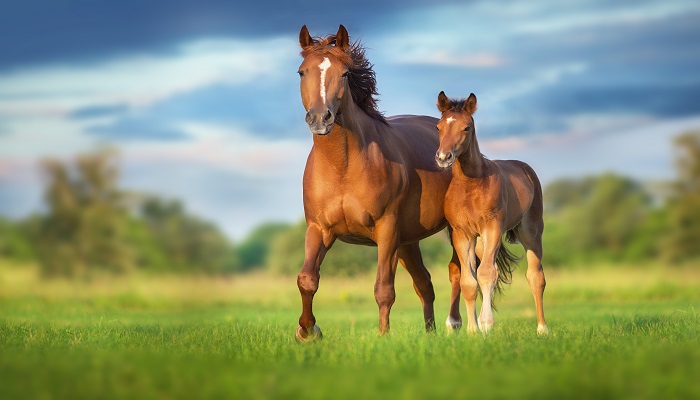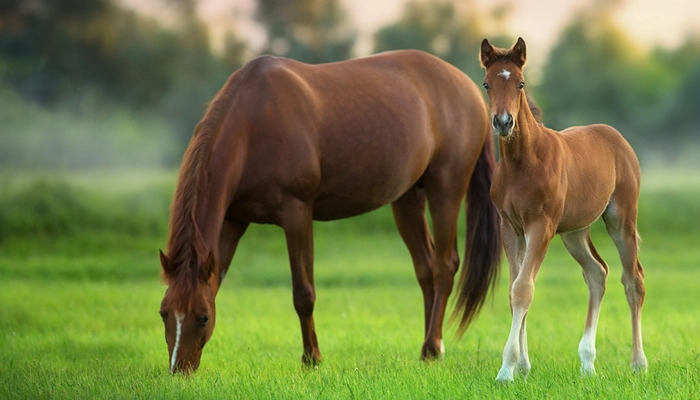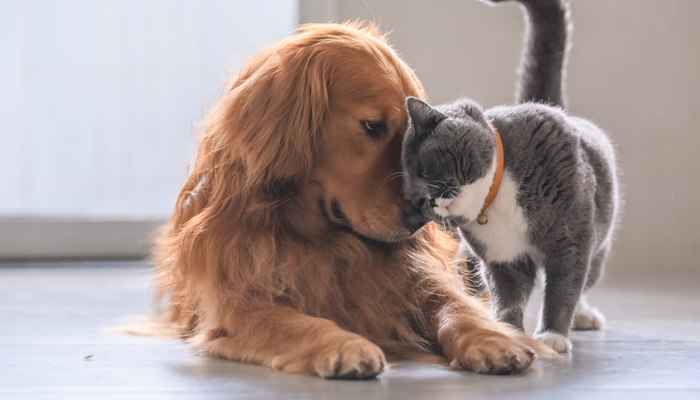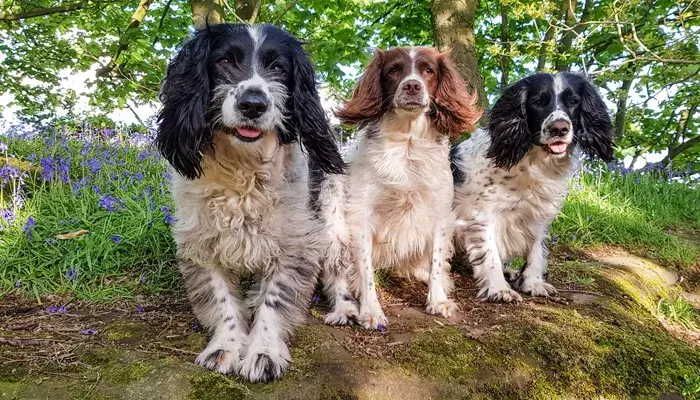Guide to Horse Care
How much does horse care cost?
For hundreds of years a basic knowledge of horse care was vital to many people who used horses for transport and business. Nowadays, the primary virtue of a horse is as a valued and rewarding companion, so the real work is in the ethical and legal responsibility of you as the owner to ensure that your horse has all the essential requirements for its continued contentment and health. From the choice of a livery yard to what to have in a grooming kit, it can often seem like there is an endless list of things to cover. Here is our basic guide to some of the key areas of horse care.
One frequent question is: How much does owning a horse cost? Bombproof happy hackers are often seen as a more affordable option in the initial outlay of buying a horse. However, as a prey animal, horses can be unpredictable creatures and this is just as true of their state of health.
The most important thing to understand in the first instance is the ongoing commitment of both time and money required for successful horse care, no matter what breed you have chosen.
Horse equipment, tack and rugs
When looking at horse equipment and clothing you will find there are many brands and varieties to choose from. Complete grooming kits can be bought at the outset, then you will be able to build up your own preferred specialist items over time.
A more complex area is choosing and buying the right rugs for your horse. From a durable turnout rug to an anti-sweat sheet, rugs are a costly but vital part of horse care. Research the different brands carefully, and speak to others on your yard for their advice if you need help with areas such as how to measure a rug for your horse.
Choosing a horse yard, livery yard or stables
For both you and your horse another key question is: what kind of horse yard, livery yard or stable yard is best? Paying for full livery means that staff at the yard will be responsible for jobs such as bringing in and turning out, mucking out, feed, hold for any farrier/ vet/ dental visits and a health check for obvious problems.
When at the yard all you will need to do are tasks such as groom, tack up and ride, and clean your tack, DIY livery is usually the least expensive option but requires more time in the focus on day-to-day care. If you opt for DIY livery, you will need to do all of the above or pay for a one-off service. If you rent a field you will need to do all of the above plus field and stable maintenance, which includes fence repairs and ensuring water to the fields and stables.
Winter horse care and stabling
Throughout the year your horse may be kept out at grass or stabled. This will depend on factors such as the time of year and how you use your horse. For example, during the shorter daylight of winter, you will want to be able to maximise the time available to ride by having your horse readily available to go out for schooling or hacking with a minimal amount of grooming.
If horses are stabled for many hours then they can be prone to boredom and behavioural problems known as stable vices. Horses should be stabled in as natural an environment as possible; they are highly sociable animals and should be able to see and hear other horses as they would in a herd environment. The individual stable should be safe and well-maintained with regular checks, and as much room as possible for the horse to move and roll.
An important part of stabling and winter welfare is therefore also ensuring your horse has constant access to water, they are able to graze throughout the day and that they are mucked out regularly. If you find yourself in a position where you have concerns about the conditions a horse is being kept it you can report it securely.
Horse feed and diet
It is very important to consider the diet of your horse carefully. What they are fed and when links clearly to areas of stabling and health checks as being a vital part of ensuring your horse’s welfare. This is where your horse's previous owner can be a valuable person for information as moving yards or any change in routine can be stressful for a horse. Any changes to its diet must be done gradually or this can increase the likelihood of colic.
What you feed your horse will be affected by whether it is kept in a stable or out at grass. Either way, a vital component of equine welfare is that all horses must have a consistent supply of quality forage (hay, grass or haylage). Physically, it is vital for the horse’s digestive system in the gut, but also to sustain its large energy requirements.
Diet will also depend on factors such as how you use your horse. If you are competing with your horse in an endurance sport such as cross country, it might need additional joint supplements. Whether they are used for hacking or dressage, as horses age there are also specialist feeds available to aid with related symptoms.
Pony care
Every pony or horse is different and it is up to you to decide what works best as you build a relationship. Although there are many similarities with general horse care, there are still a few specific pony care points worth remembering when it comes to native ponies - especially in the colder months.
Native pony care
Native ponies will typically have thicker manes and although it is time consuming, care should be taken to tease them and keep them tangle free.
Furthermore, whiles they have hardy feet these still need to be checked regularly. If they are regularly turned out in wet conditions, they may still suffer from mud fever or thrush.
Ideally their coat and mane should be left in as natural state as possible. If you are unsure about what rugs are necessary or whether your pony should be clipped for hunting, ask around at your local pony club or look into what is best practice for your specific breed.
Exercise and hacking for your horse
The pay-off for committed and good quality horse care is undoubtedly being able to spend time with your horse secure in the knowledge they are happy and healthy. This is why hacking is beneficial for both you and your horse, and is one further part of horse care, even as you enjoy the end result of a rewarding ride through the country.
Horses are creatures of endurance who in the wild would cover miles in a day. Hacking helps keeps them fit as well as addressing stiffness in older horses. It is also good for horses to have variety in their routine and surroundings, as they would in their natural environment, so hacking helps to mentally stimulate them.
If possible, try and ride out with other horses as this will build your horse’s confidence and help build his/its socialisation. Riding out will also be an important part of how you make friends at your chosen yard, so it is a good idea to check the yard’s hacking provision before you sign a livery contract. All this means that before you have even left the yard you will have peace of mind that you have done everything necessary to ensure your horse’s welfare.
Rider, horse and road safety
Even though horses can be nervous and unpredictable animals, it is understandable that other people will be wary of their size and strength. Accordingly, a key part of equestrian care is your need to be confident as both a rider and a handler in order to address typical behavioural issues such as spooking and napping. This is especially true when riding out on the roads as you will need to be able to ensure the safety of you and other road users as much as possible.
If you need to work on your confidence, regular lessons with a reputable instructor are one good way to help improve ongoing issues in your riding, as well hacking out with other experienced horsey people.
Another option you could look into is the essential horse knowledge certificate offered by the British Horse Society. This is aimed at first time owners or anyone interested in learning the essential principles of horse care.
Horse hoof care and health assessments
Healthy hoof care to the importance of winter health
Bringing your horse in from the field provides a useful time in the daily routine of horse care to check their health and welfare. Easy things to look for are bright, clear eyes with a pale colour to the skin, as well as a clean nose and no stiffness or change in their gait. Fields are common places for injuries and, as with other health issues, early detection is invaluable. Learning how to conduct a basic health assessment is vital for anyone who regularly interacts with a horse or pony, whether you are the owner or a part-time sharer.
Check the hydration status of your horse
Learning how to take a horse’s temperature and even how to check their hydration and respiration are just some of the vital signs it can be useful to know, especially if you have to urgently relay information to a vet.
Keeping track of your horse care
On a purely practical level, it is good to have an established folder or portfolio where you keep hard copies of all the relevant information regarding identification documents, farrier visits, worming dates and vaccination history. It is also a legal requirement for equines over six months to have an identification passport.
Horse insurance from Towergate
Towergate offers horse insurance that can be tailored to suit you and your horse. Call for a quote, or to ask any questions in relation to your horse insurance enquiry, on 01536 486060. Alternatively, read more about our horse insurance and what we can cover.
About the author
Adam Summersby is a respected leader with over 11 years’ varied experience in niche personal and commercial lines insurance, including boat, caravan, site operators and excess reimbursement, with proficiency in leadership, sales and account management.
personal and commercial lines insurance, including boat, caravan, site operators and excess reimbursement, with proficiency in leadership, sales and account management.
He works across a number of insurance policy development and delivery areas including distribution, marketing, operations, product development, UX and relationship management with a keen focus on customer outcome and service delivery.
Adam’s current role is Business Unit Director for the Lifestyle division in Towergate, based in Cheltenham. Towergate is the UK’s leading independent insurance broking platform and forms part of the Ardonagh Group, an international network of over 100 offices and 6,000 people which incorporates leading brands in both Lloyd’s of London and global markets.
Date: September 11, 2019
Category: Care and Medical





